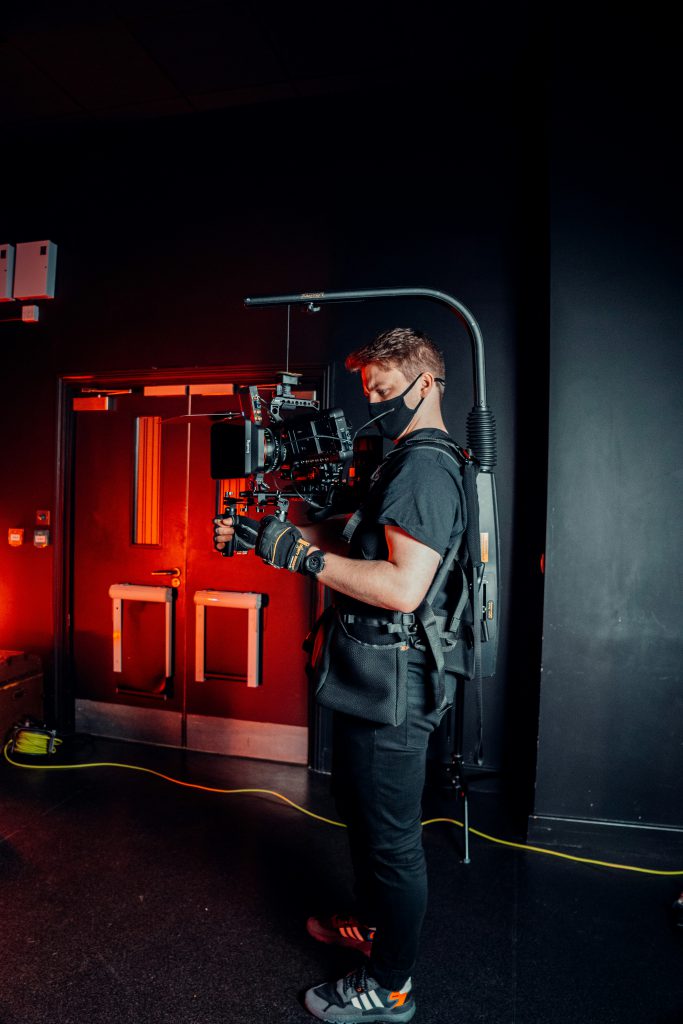
Unlocking the Value: How Your Commercial Property Can Become a Film Location

Photo by Ben Collins on Unsplash
Turning a commercial property into a film location can be a lucrative opportunity as a new revenue stream, especially with the UK film industry’s steady growth and the rising demand for unique filming locations. Here’s a step-by-step guide on how property owners can prepare and market their spaces for photo shoots, film and TV productions.
1. Understand What Location Scouts Are Looking For
- Unique and Authentic Spaces: Location scouts are often on the hunt for spaces that have character or architectural significance. For example, historic buildings, lofts with industrial charm, or modern office spaces with high-tech features all offer different types of appeal.distinctive architectural details
- Versatile Interiors and Exteriors: A property with flexible spaces that can be adapted or “dressed” to fit various scenes is highly valuable. Open layouts or multi-purpose spaces are particularly useful for this.
- Accessibility and Surrounding Area: Easy access for cast, crew, and equipment is essential. Properties located near major cities or with ample parking and facilities are more likely to be chosen. property must have rooms large enough to comfortably accommodate a crew
2. Prepare the Property for Filming
- Assess the Space for Practicality: Before marketing the space, consider practical details like power supply, heating, and other amenities that film crews may need. An accessible layout and robust infrastructure can make your property more appealing.
- Maintenance and Cleanliness: Ensure the property is in good condition. Film companies may bring a lot of equipment, which can lead to wear and tear, so ensuring floors, walls, and fixtures are well-maintained is crucial.
- Flexibility for Adjustments: Some productions might request to move or temporarily alter certain elements of your property. Consider if your property can accommodate minor modifications, such as painting walls or rearranging furnishings.
- Check that there are no reasons why you cannot legally hire out the site.
3. Market Your Property as a Film Location
- Listing with Location Agencies: These agencies specialise in connecting property owners with location scouts and production companies. By registering your property listing with a reputable agency, your property will reach a broader audience and gain visibility among production companies without any obligation to accept any filming.
- High-Quality Photography and Videos: Invest in professional photos and a short video tour that capture the unique aspects of your property. The visuals should highlight key areas that may appeal to scouts, like interesting architectural details, open spaces, or unique lighting features.
- Create an Online Presence: Consider a dedicated website or social media presence for the property. Including testimonials or case studies of past film projects can increase credibility.
4. Understand the Financial and Legal Aspects
- Rental Fees: Rental fees can vary widely depending on factors like location, type of property, the duration of the shoot and the size of the crew. Commercial properties in major cities or with highly unique features may command premium rates.
- Contracts and Liability: A solid rental contract/film location agreement is essential to outline the terms of use, potential alterations, fees, and insurance requirements. Production companies usually carry insurance and should be responsible for returning the property back to its original state , but having your own insurance in place as a backup is wise.
- Duration and Disruptions: Consider how long filming may take and how it might affect any tenants or regular business activities. It’s essential to account for setup and breakdown time, as productions may require days or even weeks beyond the actual shoot.
5. Prepare for Practical Logistics
- Parking and Access for Equipment: Film crews often come with a large amount of equipment, which requires ample parking and loading areas. If possible, secure nearby parking options or loading places that can accommodate large vehicles.
- Amenities for the Crew: Restrooms, holding areas, and places for breaks are essential, especially for long shoots. If these facilities are limited, consider renting portable facilities to accommodate larger crews.
- Off Limits: Be very clear about rooms or areas that are off limits
6. Consider the Benefits Beyond Rental Income
- Publicity and Brand Awareness: Having a commercial property featured in a film or series can boost its profile and lead to new business opportunities. This can also add to the property’s historical value, especially if it becomes associated with a well-known film or TV show.
- Tax Benefits: In some cases, property owners might be able to claim tax benefits related to maintenance, utilities, cleaning costs or improvements made for film-related purposes. It’s worth consulting a tax advisor to see if any expenses could qualify for deductions.
With these steps, a commercial property can successfully become a film location, potentially generating substantial revenue and offering long-term exposure benefits.
